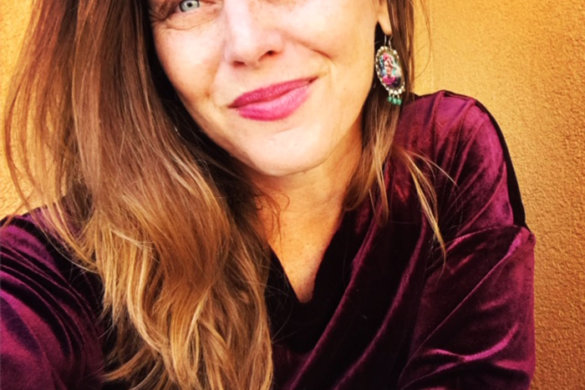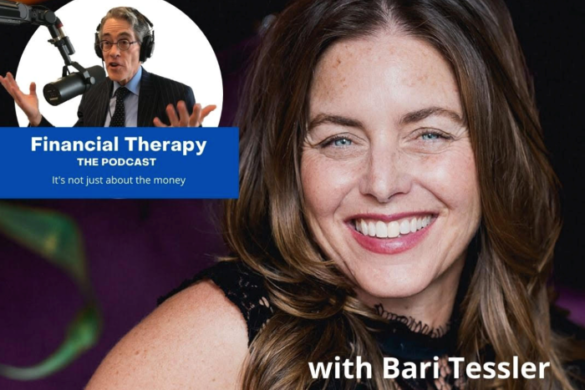Welcome to Part Two of a 3-part series on Money + Creative Entrepreneurship. I’ve alluded to the “money work” of being an entrepreneur many times. But now, for the first time, I’m sharing a full picture view of money work just for you entrepreneurs — including insights, practical wisdom, and the very best of my own behind-the-scenes business money story. Be sure to catch Part One (on Money Healing) right here.
If you’ve had conversations about money and entrepreneurship before, they’ve probably fallen into this realm: Money Practices. (But, of course, I’m going to talk about this realm a little differently!)
Here, we deal with those practical, nuts ‘n bolts techniques. Number crunching, bookkeeping systems, financial support teams, etc. This is the outer realm of looking at your numbers, understanding them, and creating daily/weekly/monthly/annual practices to check in with them.
Please know: this is only one slice of the pie.
Money Practices are crucial. But I have a 3-phase system for a reason — and without the other two phases, Money Practices will fall flat, feel lifeless, and never truly support you.
We need the emotional work of Money Healing, the external systems of Money Practices, and the big visioning of Money Maps to create a money relationship that feels honest, functioning, and aligned with our values.
Yes. This takes time. And like all journeys, it begins with baby steps.
Money Practices: The Lifeblood + Language of Your Business
It amazes me how many biz owners are afraid to even peek at their numbers. There are so many reasons we list: “I wasn’t good at math in school.” “It’s a totally new, weird, foreign land and too overwhelming.” “I’m simply too creative and right-brained to deal with all that boring stuff.” Becausebecausebecause…
Don’t get me wrong: there’s no judgement, here! It took me ‘till my 20’s to pull my head out of the sand and even begin creating a relationship with money. This is emotionally charged stuff. But that money work you’re sweeping under the rug?
Running a business will drag it all right out into the open.
As an entrepreneur, it is nothing short of essential that you look at and understand your numbers.
So. Put on your most fabulous thinking cap. Grab a bite of chocolate, if you like. Here comes some practical wisdom, culled from my community and my own business journey.
Questions + Lessons for Entrepreneurial Money Practices
1. Remember: this is emotional work, too!
I know: I said this was about those external systems. And it is! But you always have emotions and sensations and beliefs running — even when you’re creating a spreadsheet or checking your bank balance. (Ahem, sometimes especially then!)
That’s why I always teach the Money Healing phase before Money Practices. Most of my folks report that once they move through the emotional work, they finally feel ready for the practical stuff. Doing the emotional Money Healing work moves us through the shame, fog, and traps that so often arise when we deal with money. It empowers us with clarity and readiness so that once we get to learning and incorporating the practical, we can do it without feeling overwhelmed, confused, or foggy.
So as you read these ideas and begin implementing them in your life, keep an eye on your emotions. If you start feeling overwhelmed, “checking out,” or upset, go back to the Money Healing phase for a moment. Keep a watchful eye for limiting beliefs or self-sabotaging patterns. Be gentle with yourself. Money Practices make your business function, but Money Healing breathes it to life. (And, if you like; Money Maps are about where it’s going.)
2. When in doubt, do a Body Check-In.
I alwaysalwaysalways begin my Money Practices with what I call a “Body Check-In.” It’s an ultra-simple but profound way to get present with whatever’s arising — so you can work with it.
How to do it (the ultra-short version): Take a few deep, slow breaths. Close your eyes if you like. Get willing, open, and curious about your inner experience. Place your attention on your body. What do you feel? Pause. Let yourself become aware of any thoughts, emotions, body sensations, or memories passing through your body or the “screen” of your mind. Simply notice, here. No judgment, no self-criticism, no trying to change anything. Simply notice.
As an entrepreneur, you can rely on Body Check-Ins any time you’re working with money. Before you sit down to look at your finances. As you open up your bills or online bank account. Before talking to your bookkeeper or accountant. In the middle of a money conversation with your team or your honey or your coach or a client. Before dealing with money, as you deal with it, or afterwards. It only takes a moment, and the results are truly astonishing.
Self-awareness is the beginning of self-liberation. (More on how to do a Body Check-In right below.)
3. Learn the Language of Money.
This is the lifeblood of your business! Even if you end up handing off the bulk of it to a bookkeeper and/or accountant, this is ultimately your responsibility to watch, understand, and grok. Find a bookkeeping system that works for you. Learn to read your reports, review your numbers, and understand how it all fits together. How else can you know what’s working and what’s not, financially?
4. Find, Learn, and Stick with a Bookkeeping System.
This. Is. Huge. But it doesn’t have to be difficult. Get help if you need it. Please don’t fall into the oh-so-common “analysis paralysis” trap of comparing systems without actually using one! Find a system you like — and dive on in. My favorites for biz: Quickbooks, Xero, Outright, Kashoo, and Wave. And check out this great article comparing the best bookkeeping systems for freelancers and entrepreneurs.
5. Go on “Money Dates” for your Business.
Regular “money dates” are a wellspring of clarity, understanding, compassion, and possibilities. Set up daily/weekly/monthly/yearly practices to look at your numbers. Check your income and expenses. Look at your profit margins. Compare this year to last year. Take a look at your Money Map/Map of Intentions and compare that to what’s actually happening. Track what you can, so you can make smarter choices. And always remember: this is a process. Perfection is not the goal. Shower yourself with compassion and gentleness — and become savvier every step of the way.
6. Gather a Financial Support Team.
You absolutely do not need to do this all on your own! Depending on what phase your business is in (and growing into), perhaps it’s time to welcome some support. This might include: Bookkeepers, Bookkeeping Trainers, Financial Coaches, Accountants, Financial Planners, Trademark Attorneys, Biz Strategists, and on and on.
And you do not need to add all of these at once! No way. Take one step at a time. Keep checking in with yourself and your business to see what you’re ready for. Sometimes delegating tasks is the best, bravest thing you can do. But always remember: ultimately, it is your great responsibility to masterfully manage your money.
7. Values-Based Bookkeeping.
I’m all about making things creative, aligning them with my core values, and infusing them with meaning and playfulness. Does that sound like your “budget”? No?? Well, it can. Take a look at your business expenses and see if the names you’ve listed light you up. It sounds simple, but changing the names on your budget (or “money map of intention, as I like to call it) can bring this dusty area to life. Try changing “office rental” to “creative genius sanctuary” or turn “internet” into “Go-Go Gadget Global Connection!”
Making this personal, playful, and meaningful can make a huge difference in how you relate to your expenses. Another example: Forest and I recently found ourselves in a world of resistance around taxes. We always paid them on time, but it was often grudgingly. so we changed “taxes” to “community contribution,” which reminds us of all the wonderful things this money goes to support. It’s made a big difference for us!
8. The Power of Numbers.
Once more, for emphasis: learning the language of money and looking at your numbers is crazily empowering. Especially if you’re a creative entrepreneur, more inclined to find your answers on a dancefloor than a spreadsheet. You really can learn to do this! Learn to read your reports and review your Profit and Loss. Check in on your patterns: monthly, quarterly, and annually. This is the only way you can truly see what’s working, what’s not, and what needs to be fine-tuned.
A Peek into My Own Money Practices:
For years, I did my own bookkeeping: I learned how to run, read, and understand my financial reports — and this helped me notice what was working in my business, what wasn’t, and what needed to be fine-tuned.
I will be forever grateful for this education. Especially for me — a heart-based, creative gal who avoided money in part because of my belief that I was “bad at math” — taking control of my books and truly understanding the language of money was so healing. (And, yes: I made it fun, too!)
Finally, though, last year it was time. I took the leap and handed over my books to an amazing bookkeeper. My business had grown to a point where I really needed some more professional help. And there were so many other parts of my business I wanted to attend to. I handed things off to my wonderful bookkeeper, Jess Salzman — and have been thrilled with the results.
Remember: your money practices will evolve over time.
It’s a journey, folks! And a very personal one.
Forest and I are constantly refining our money practices (both business and personal). We now use Quickbooks (for biz), iBank (for personal), and a mega-robust Google spreadsheet that Forest made to map out and track our cashflow for the entire year (so cool!!).
In addition to our work with our wonderful bookkeeper, Forest and I do a lot of money work on our own, for personal and business finances.
My Favorite Tools for Money Practices:
The Body Check-In. This deceptively simple tool will support you as you work with everything here.
Getting stuck in the practical nitty-gritty? It might be time for a little Money Healing.
What to do when you’re terrified to even peek at your numbers
A mini-guide to taking yourself on a Money Date
The Ultimate Guide to Working with a Bookkeeper (or not!)
Stuck on what bookkeeping system to use? Just pick one!
20 Questions for your accountant that will save your tushy.
Having the right tools and practices for your biz can make all the difference. But it’s not just about money, right? Running a business involves so many pieces: marketing, product creation, web tech tools, branding, client relationship, and on and on …





